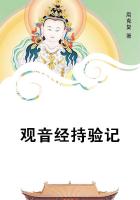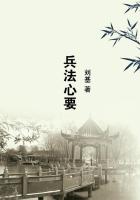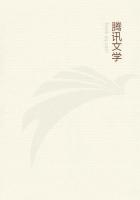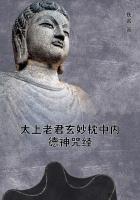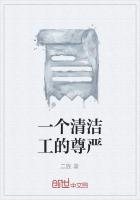On that never to be forgotten day we waited and waited,and Charles did not return.At six o'clock,when poor little Caroline had gone back to her room in a state of suspense impossible to describe,a man who worked in the water-meadows came to the house and asked for my father.He had an interview with him in the study.My father then rang his bell,and sent for me.I went down;and I then learnt the fatal news.Charles was no more.The waterman had been going to shut down the hatches of a weir in the meads when he saw a hat on the edge of the pool below,floating round and round in the eddy,and looking into the pool saw something strange at the bottom.He knew what it meant,and lowering the hatches so that the water was still,could distinctly see the body.It is needless to write particulars that were in the newspapers at the time.Charles was brought to the house,but he was dead.
We all feared for Caroline;and she suffered much;but strange to say,her suffering was purely of the nature of deep grief which found relief in sobbing and tears.It came out at the inquest that Charles had been accustomed to cross the meads to give an occasional half-crown to an old man who lived on the opposite hill,who had once been a landscape painter in an humble way till he lost his eyesight;and it was assumed that he had gone thither for the same purpose to-day,and to bid him farewell.On this information the coroner's jury found that his death had been caused by misadventure;and everybody believes to this hour that he was drowned while crossing the weir to relieve the old man.Except one:she believes in no accident.
After the stunning effect of the first news,I thought it strange that he should have chosen to go on such an errand at the last moment,and to go personally,when there was so little time to spare,since any gift could have been so easily sent by another hand.
Further reflection has convinced me that this step out of life was as much a part of the day's plan as was the wedding in the church hard by.They were the two halves of his complete intention when he gave me on the Grand Canal that assurance which I shall never forget:
'Very well,then;honour shall be my word,not love.If she says "Yes,"the marriage shall be.'I do not know why I should have made this entry at this particular time;but it has occurred to me to do it--to complete,in a measure,that part of my desultory chronicle which relates to the love-story of my sister and Charles.She lives on meekly in her grief;and will probably outlive it;while I--but never mind me.
CHAPTER X.--SHE ADDS A NOTE LONG AFTER
Five-years later.--I have lighted upon this old diary,which it has interested me to look over,containing,as it does,records of the time when life shone more warmly in my eye than it does now.I am impelled to add one sentence to round off its record of the past.
About a year ago my sister Caroline,after a persistent wooing,accepted the hand and heart of Theophilus Higham,once the blushing young Scripture reader who assisted at the substitute for a marriage I planned,and now the fully-ordained curate of the next parish.His penitence for the part he played ended in love.We have all now made atonement for our sins against her:may she be deceived no more.
1887.
THE GRAVE BY THE HANDPOST
I never pass through Chalk-Newton without turning to regard the neighbouring upland,at a point where a lane crosses the lone straight highway dividing this from the next parish;a sight which does not fail to recall the event that once happened there;and,though it may seem superfluous,at this date,to disinter more memories of village history,the whispers of that spot may claim to be preserved.
It was on a dark,yet mild and exceptionally dry evening at Christmas-time (according to the testimony of William Dewy of Mellstock,Michael Mail,and others),that the choir of Chalk-Newton--a large parish situate about half-way between the towns of Ivel and Casterbridge,and now a railway station--left their homes just before midnight to repeat their annual harmonies under the windows of the local population.The band of instrumentalists and singers was one of the largest in the county;and,unlike the smaller and finer Mellstock string-band,which eschewed all but the catgut,it included brass and reed performers at full Sunday services,and reached all across the west gallery.
On this night there were two or three violins,two 'cellos,a tenor viol,double bass,hautboy,clarionets,serpent,and seven singers.
It was,however,not the choir's labours,but what its members chanced to witness,that particularly marked the occasion.
They had pursued their rounds for many years without meeting with any incident of an unusual kind,but to-night,according to the assertions of several,there prevailed,to begin with,an exceptionally solemn and thoughtful mood among two or three of the oldest in the band,as if they were thinking they might be joined by the phantoms of dead friends who had been of their number in earlier years,and now were mute in the churchyard under flattening mounds--friends who had shown greater zest for melody in their time than was shown in this;or that some past voice of a semi-transparent figure might quaver from some bedroom-window its acknowledgment of their nocturnal greeting,instead of a familiar living neighbour.Whether this were fact or fancy,the younger members of the choir met together with their customary thoughtlessness and buoyancy.When they had gathered by the stone stump of the cross in the middle of the village,near the White Horse Inn,which they made their starting point,some one observed that they were full early,that it was not yet twelve o'clock.The local waits of those days mostly refrained from sounding a note before Christmas morning had astronomically arrived,and not caring to return to their beer,they decided to begin with some outlying cottages in Sidlinch Lane,where the people had no clocks,and would not know whether it were night or morning.

